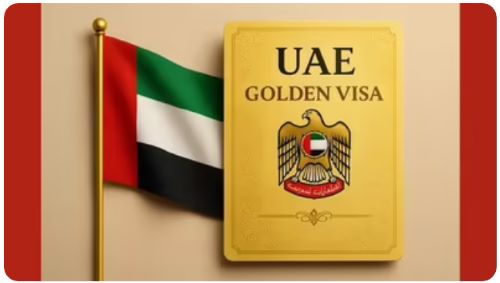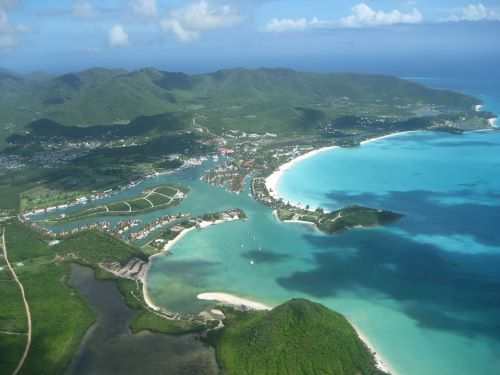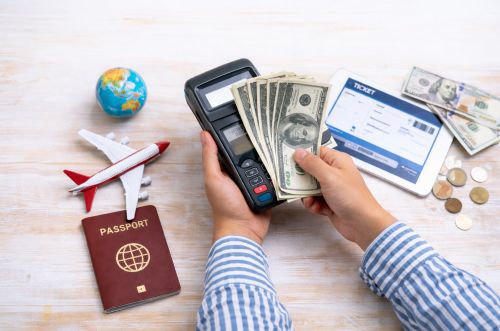

A nation’s true wealth lies not in the portfolios of its investors, but in the lived bonds of its people. When citizenship is bought, we must ask: what is being sold?

By Matthew A. McIntosh
Public Historian
Brewminate
The Passport as Commodity
Citizenship has long been treated as a sacred bond between individual and nation, a shared identity forged through history, allegiance, and contribution. Yet in the age of global finance, it has quietly become something else: a product, purchasable by those with sufficient wealth. From the Caribbean to the Mediterranean, so-called “golden visa” programs allow affluent foreigners to acquire residency rights, and sometimes full citizenship, in exchange for investment.
Supporters frame it as a pragmatic arrangement: a win-win for nations seeking capital and investors seeking mobility. But this transactional model raises urgent questions. If citizenship can be bought, is it still meaningful? And what does it say about belonging when one can gain the privileges of nationhood with a bank transfer, while those fleeing war or persecution face indefinite detention behind border fences and bureaucratic walls?
At its heart, this is not merely an economic debate. It is a question of moral hierarchy: who deserves inclusion, and who does not.
Mapping the Market for Citizenship
Golden visa programs are not a fringe phenomenon. Over 100 countries have launched some form of investment migration scheme, though they vary in structure and generosity. The European Union offers some of the most coveted programs. Greece, Portugal, and Spain have attracted thousands of investors with relatively modest property investment thresholds.
Malta’s Individual Investor Programme, one of the more controversial models, allows applicants to obtain citizenship for a combination of donations and investments totaling roughly €1 million. In the Caribbean, countries like St. Kitts and Nevis, Antigua and Barbuda, and Dominica offer fast-track passports for as little as $100,000. For the ultra-wealthy, these options serve as geopolitical insurance policies. They are backup plans in case of instability, taxation shifts, or political fallout in their home nations.
China and Russia rank among the top sources of applicants, alongside Middle Eastern elites and wealthy individuals from Southeast Asia. U.S. citizens have increasingly joined their ranks in recent years, often citing tax considerations or political instability as motivation.
What began as a revenue tool for cash-strapped governments has become a global industry valued in the billions. Firms like Henley & Partners have turned migration into a consulting commodity, marketing passports with the same polish and efficiency as luxury real estate.
Refugees in Detention, Investors in Luxury

The contrast could not be more glaring. While golden visa applicants are greeted with welcome kits and private tours, asylum seekers navigate perilous journeys and face imprisonment upon arrival.
In Greece, a favored destination for golden visa investors, thousands of refugees remain trapped in camps with inadequate sanitation and legal support. These include children, families, and survivors of war. At the same time, foreign investors acquiring €250,000 in property are fast-tracked through residence permits and granted freedom of movement throughout the Schengen Area.
The United Kingdom, which once ran a Tier 1 investor visa program, simultaneously implemented a “hostile environment” policy aimed at deterring migrants and tightening deportation enforcement. In the U.S., the EB-5 program, granted to those investing $900,000 or more in job-creating ventures, was thriving even as asylum seekers were subjected to family separation and prolonged detention.
The ethics are difficult to reconcile. How can democratic societies justify a dual system in which wealth provides access to rights, while desperation is met with suspicion? This is not merely about immigration. It is about the philosophical core of citizenship itself.
The Vanishing Idea of the Social Contract
Philosophers from Rousseau to Rawls have described citizenship as a form of contract, a reciprocal relationship between the individual and the state. The citizen contributes to the life of the community, and in return, receives protection, opportunity, and a political voice.
Golden visas disrupt this contract. They introduce a model where contribution is measured not in civic participation, but in capital outlay. The act of naturalization becomes an investment, not an allegiance. In this view, the state functions not as a sovereign community, but as a service provider.
For those who can pay, borders dissolve. Travel restrictions vanish, and multiple allegiances become flexible options in a portfolio of global privileges. For those who cannot, walls grow taller. Access is controlled, not by merit or moral claim, but by purchasing power.
What remains of civic virtue when the rights of citizenship can be bundled with real estate or equity shares? When patriotism is outbid by liquidity?
Economic Boon or Moral Hazard?

Defenders of golden visa programs argue that they provide critical capital, particularly in times of fiscal crisis. In small nations, these funds have propped up infrastructure, boosted real estate markets, and even helped weather global downturns.
In Antigua and Barbuda, for example, citizenship-by-investment revenues accounted for more than 10% of GDP at one point, used to rebuild after hurricanes and support tourism development. Similar stories abound in Cyprus and Dominica.
But the benefits are not evenly distributed. In Portugal, real estate speculation driven by golden visa applicants helped fuel a housing crisis, pricing locals out of their own cities. In Malta, corruption scandals have surrounded the passport industry, with leaked documents suggesting some applicants were fast-tracked without adequate vetting.
The IMF has warned that such schemes can undermine global transparency, enabling tax evasion, money laundering, and illicit capital flows. Where accountability is weak, citizenship becomes a tool for reputation laundering.
These are not fringe risks. They are systemic byproducts of tying political identity to financial transaction.
Toward a More Ethical Model of Inclusion
The concept of open borders remains politically radioactive in most of the world. But there is space for reform that re-centers moral claim over capital.
Countries could, for instance, impose caps on investor naturalizations, tie citizenship more closely to residence and participation, or require investments to support social infrastructure in underserved areas. Transparency in application processes and stronger international oversight could help address corruption concerns.
Equally important is a recalibration of values. If citizenship is truly to mean something, it cannot be the exclusive reward of affluence. The refugee fleeing violence deserves dignity. The worker building roads and raising families deserves a pathway to belonging.
Nations cannot afford to operate with one set of rules for those in Gulfstream jets and another for those crossing deserts on foot.
A Citizenship Worth the Name
At its best, citizenship is a claim to common purpose. It is not only a passport but a place in the human story of a people and a polity.
To sell it as a commodity is to erode that story into something shallower, a matter of convenience, not commitment. There is no denying the pragmatism of golden visa programs. But pragmatism alone cannot justify inequality.
A nation’s true wealth lies not in the portfolios of its investors, but in the lived bonds of its people. When citizenship is bought, we must ask: what is being sold? And who, in this marketplace of belonging, is left without a price?
Originally published by Brewminate, 07.17.2025, under the terms of a Creative Commons Attribution-NonCommercial-NoDerivatives 4.0 International license.


